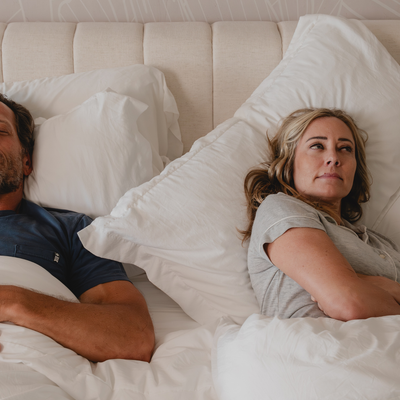As emphasis on healthy aging grows, the importance of sleep health becomes center stage. A recent Harvard study suggests that suffering from sleep apnea can actually accelerate the aging process by increasing an individual’s "biological age." The study shows a notable association between sleep-disordered breathing severity and a speed-up in the biological aging process. The lead author of the study, Dr. Xiaoui Li, Sc.D, explains, "People's biological age might not be the same as their chronological age. Individuals whose biological age is higher than their chronological age exhibit age acceleration or fast aging. In our study, we found that more severe sleep-disordered breathing is associated with epigenetic age acceleration. Our data provide biological evidence supporting adverse physiological and health effects of untreated sleep-disordered breathing.”1 Equally important, the study found that the association between sleep apnea and fast aging seems to be stronger in women than in men.
In our study, we found that more severe sleep-disordered breathing is associated with epigenetic age acceleration. Our data provide biological evidence supporting adverse physiological and health effects of untreated sleep-disordered breathing.
Again, Dr. Li explains, "While women are often considered to be at lower risk for health outcomes related to sleep-disordered breathing, our findings suggest increased biological susceptibility.”1 So while women may be somewhat less likely to suffer from sleep apnea, women may also be more susceptible to its negative effects. The good news is that biological age acceleration can be reversed. Therefore, the authors of this study suggest that proper treatment for sleep-disordered breathing can potentially reverse “fast aging” process in sleep apnea sufferers.

Are you at risk for sleep apnea and its potential negative effects? If you snore loudly, gasp for air during sleep or experience day time sleepiness, you may be among the millions of people who suffer from sleep-disordered breathing. If you suspect you have sleep apnea, speak to your physician or discover the Lofta Complete Path now. Better sleep can change your life and its never been easier.

The Lofta Complete Path
Learn more about Lofta’s fast and easy path for the diagnosis and treatment of sleep apnea. Living with sleep apnea can be challenging, treating it doesn’t have to be.
Learn More












































